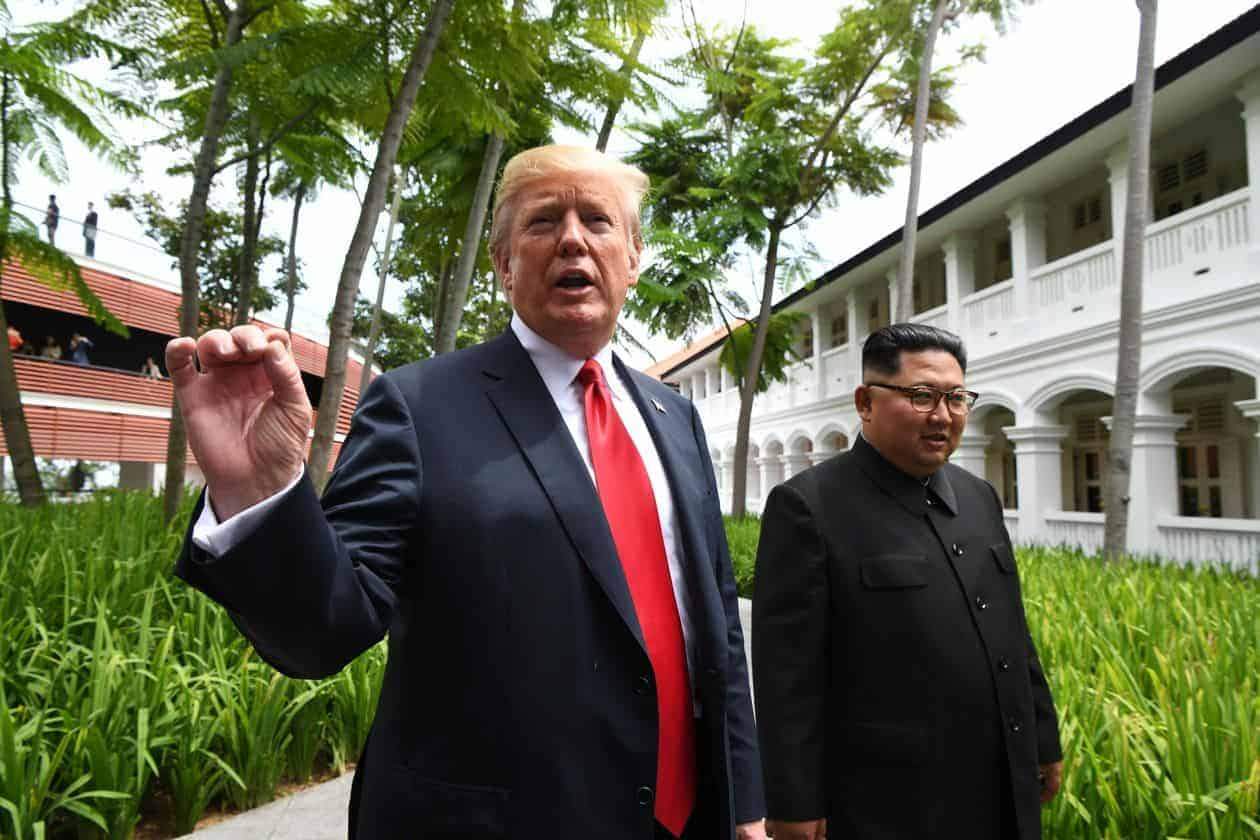North Korea Promises to Advance Nuclear Weapons as It Turns Back to Foreign Affairs

North Korea, on the second anniversary of the historic Singapore summit, said relations with the U.S. had “shifted into despair” and promised the regime would advance its nuclear-weapons program.
In a state-media report on Friday, Ri Son Gwon, North Korea’s foreign minister, questioned whether relying on the close bond between leader Kim Jong Un and President Trump could ever improve ties between the two countries. Mr. Ri added that Pyongyang would build a “more reliable force” to withstand the long-term military threat posed by the U.S.
“The question is whether there will be a need to keep holding hands shaken in Singapore,” he said, referring to the first meeting between Messrs. Trump and Kim.
Mr. Ri’s sharpened tone was a shift from the scene in Singapore two years ago, when Mr. Trump called the four-hour summit “fantastic” and cameras captured his 13-second handshake with Mr. Kim. The two leaders have since met twice more and have sent each other letters. In Singapore, the two countries pledged to bring peace to the Korean Peninsula with denuclearization and new relations.
Pyongyang often makes exaggerated claims in state media. But the threat of the new coronavirus had kept North Korea under the radar for much of the year, as Mr. Kim largely focused on domestic issues. Now, the Kim regime has increased its focus again on foreign affairs.
Mr. Kim, in his most recent public appearance, on May 24, had presided over a meeting of the North’s top military-governing body, where the country adopted new policies for increasing nuclear-war deterrence. On Friday, Mr. Ri reiterated that the boosted military capabilities against the U.S. were Pyongyang’s strategic goal.
North Korea, which had remained quiet for much of the year, has increased state-media lashings this month, slamming the U.S., South Korea, the United Nations and others. The break from relative silence emerges as Pyongyang angles for attention and negotiating leverage with roughly five months left before the 2020 presidential election.
On Tuesday, Pyongyang said it had severed communication lines with Seoul, denouncing South Korea for failing to uphold promises to block defectors from sending leaflets across the inter-Korean border. The North now labels its southern neighbor as an enemy.
The State Department this week called the move to halt communications disappointing, drawing a swift recrimination from Pyongyang, which warned Washington to steer clear of Korean relations if it wanted a successful presidential election. After U.N. Secretary-General António Guterres expressed a similar lament about inter-Korean affairs, the North rebuked the remarks as coming from someone “knowingly drunken.”
By increasing its grumbling, the Kim regime is aiming to extract near-term concessions from the U.S. and South Korea, acting poorly and then later promising to behave better in return for rewards, said Kristine Lee, associate fellow at the Center for a New American Security, a Washington-based think tank.
“Pyongyang’s latest ploy is part of a well-established diplomatic playbook,” she said. “Ratcheting up the provocations is certainly one way to force the hand of the Trump administration and to re-emerge as a priority foreign-policy issue for the United States in an election year.”
Mr. Kim began the year by announcing a shift in U.S. policy that all but shut the door to frozen nuclear talks, urging his citizens to adjust to a life under sanctions and declaring he no longer felt bound to a moratorium on long-range weapons tests. The North Korean leader promised to soon unveil a new strategic weapon.
This year, Pyongyang hasn’t engaged in much provocation outside five smaller weapons tests. The threat of the coronavirus prompted the North to make aggressive, early moves to lock down its border and suspend foreign tourism. Senior officials, including Mr. Kim, have limited public appearances.
The Kim regime has reported no cases of Covid-19, a claim widely doubted by those who have seen the North’s health facilities. But earlier this month, North Korean state media said schools had reopened, suggesting the risks had receded.
This reduced virus threat could inform why Pyongyang is once again ratcheting up pressure on Washington and Seoul, and the pressure appears to be part of a bigger plan that stretches past its anger against defectors, said Rachel Lee, a former North Korea analyst for the U.S. government. The leaflets had been distributed more than 10 times in recent years.
“If this really was about the leaflets, North Korea would not have turned this into a media campaign like this,” she said.
Despite its fiery tone, Pyongyang hasn’t leveled any ultimatums that would eliminate the potential to return to talks this year, said Jenny Town, the deputy director of the Stimson Center, a think tank in Washington.
“You certainly can’t rule out the potential for provocation,” Ms. Town said. “But all North Korean formulations have been conditional, leaving the door open to re-engaging at some point if circumstances change.”
Photo: President Trump and Kim Jong Un in Singapore in June 2018. - ANTHONY WALLACE/AGENCE FRANCE-PRESSE/GETTY IMAGES











